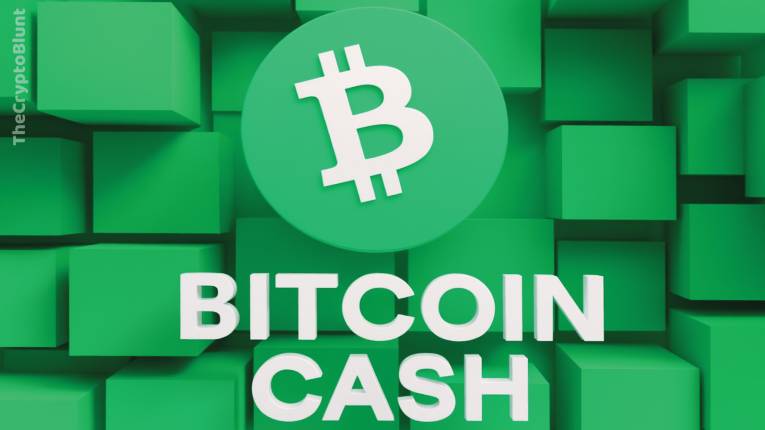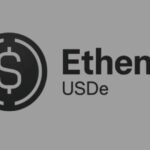When I first heard about cryptocurrencies, Bitcoin was the only name that seemed to matter. It was revolutionary, but as I delved deeper, I discovered that even within the “Bitcoin family,” there were different visions for how digital money should evolve. That’s when I encountered Bitcoin Cash (BCH) – a cryptocurrency born from a passionate desire to return to Bitcoin’s original promise: a fast, cheap, and reliable electronic peer-to-peer cash system for the entire world.
For beginners, the world of cryptocurrencies can be confusing. You might wonder, “If there’s Bitcoin, why do we need Bitcoin Cash?” or “How does this ‘digital cash’ even work?” This comprehensive guide is designed to answer those questions and more. We’ll demystify the core concepts of cryptocurrency, blockchain, and decentralization, explain the unique philosophy behind Bitcoin Cash, explore its ecosystem, and directly tackle common misconceptions about crypto, empowering you with accurate and trustworthy knowledge.
Let’s embark on this journey to understand Bitcoin Cash, its origins, its technology, and its vision for empowering individuals with efficient digital money.
Your Crypto Compass: Navigating the Core Concepts (Foundations for Understanding Bitcoin Cash)
Before we dive into the specifics of Bitcoin Cash, let’s establish a clear understanding of the fundamental concepts that underpin all blockchain technology. These are the building blocks you’ll encounter repeatedly in your crypto journey.
- Cryptocurrency: At its most basic, cryptocurrency is digital money secured by advanced cryptographic techniques. Unlike money in your traditional bank account, which is managed by a central bank or government, cryptocurrencies operate on a decentralized network. This means no single entity holds all the power; instead, a vast network of computers works together to verify and record transactions, promoting transparency and security without intermediaries. Bitcoin Cash (BCH) is a prominent example of a cryptocurrency aiming to be global digital cash.
- Blockchain: Imagine a digital ledger that’s not stored in one central location but is distributed across thousands of computers globally, constantly growing. Every transaction or piece of data is bundled into a “block,” and once complete, it’s cryptographically linked (or “chained”) to the previous block, forming an unbroken, chronological record. This ingenious structure ensures transparency, security, and immutability – once data is recorded on the blockchain, it’s nearly impossible to alter or remove, making it highly resistant to fraud. Bitcoin Cash operates on its own independent blockchain, separate from Bitcoin’s.
- Decentralization: This is the foundational philosophy of blockchain technology. It means that control and power are spread out among many participants in a network, rather than being concentrated in the hands of a single, central authority. This distribution makes the network more resilient to censorship, manipulation, and single points of failure. Bitcoin Cash is built on this principle, aiming to be a truly peer-to-peer electronic cash system.
- Consensus Mechanisms (Simplified): How do all these distributed computers agree on the correct order of transactions and validate new blocks? They use a “consensus mechanism.”
- Proof-of-Work (PoW): This is the mechanism used by both Bitcoin and Bitcoin Cash. In PoW, “miners” use powerful computers to solve complex mathematical puzzles. The first miner to solve the puzzle gets to add the next block of transactions to the blockchain and earns newly created cryptocurrency as a reward (along with transaction fees). This process requires significant computational effort, making the network secure by making it very expensive for any single entity to control it.
- Mining: In the context of Proof-of-Work blockchains like Bitcoin Cash, “mining” refers to the process by which powerful computers (called “miners”) compete to solve cryptographic puzzles. This solving process is computationally intensive and confirms transactions, creating new blocks, and adding them to the blockchain. Miners are rewarded with newly minted Bitcoin Cash and transaction fees for their efforts.
- Tokens vs. Coins: While often used interchangeably, there’s a subtle distinction. A “coin” (like Bitcoin Cash) is the native cryptocurrency of its own independent blockchain. A “token” is built on top of an existing blockchain (e.g., an ERC-20 token on Ethereum). Bitcoin Cash is a coin.
- Scalability: This refers to a blockchain’s ability to handle an increasing number of transactions as its user base grows. It’s a critical challenge for many blockchains. Bitcoin Cash’s core design philosophy revolves around achieving scalability primarily through increasing its block size limit.
What is Bitcoin Cash (BCH)? The Quest for P2P Digital Cash
Bitcoin Cash emerged from a significant debate within the Bitcoin community about how best to scale the network to handle more transactions.
The Origins: A Fork in the Road
Bitcoin was created with the vision of being “A Peer-to-Peer Electronic Cash System,” as laid out in Satoshi Nakamoto’s whitepaper. However, as Bitcoin’s popularity grew, its original design – particularly its 1 MB block size limit – began to pose challenges:
- Slow Transaction Confirmations: When the network became congested, transactions would take a long time to be confirmed.
- High Transaction Fees: To get transactions processed faster, users had to pay higher fees, making small, everyday payments uneconomical.
This led to a fundamental disagreement within the Bitcoin community:
- Small Blockers (Bitcoin Core developers and supporters): Advocated for keeping the 1 MB block size and scaling primarily through “Layer 2” solutions (like the Lightning Network) built on top of the main blockchain. They prioritized decentralization and security over on-chain capacity.
- Big Blockers (who would become Bitcoin Cash supporters): Advocated for increasing the block size limit on the main blockchain to allow for more transactions per block, believing this was essential to fulfill Bitcoin’s original vision as a peer-to-peer electronic cash system for global adoption. They prioritized low fees and fast, on-chain transactions.
This ideological split ultimately led to a hard fork on August 1, 2017. A hard fork is a permanent divergence in a blockchain where the new rules are not compatible with the old rules, effectively creating a new, separate blockchain. That’s how Bitcoin Cash (BCH) was born. At the time of the fork, anyone holding Bitcoin automatically received an equal amount of Bitcoin Cash.
Bitcoin Cash’s Core Philosophy: Fast, Cheap, Reliable Payments
Bitcoin Cash’s primary aim is to be a fast, cheap, and reliable medium for everyday digital payments – true “electronic cash” for the world. Its core design philosophy revolves around:
- Increased Block Size: Bitcoin Cash immediately increased its block size limit to 8 MB (later to 32 MB), allowing significantly more transactions to be processed in each block compared to Bitcoin’s 1 MB. This directly addresses the scalability issue that led to its creation.
- Low Transaction Fees: By allowing more transactions per block, the competition for block space is reduced, leading to much lower transaction fees compared to Bitcoin, especially during times of high network activity. This makes small payments practical.
- Fast Confirmations: Larger blocks mean more transactions can be confirmed faster, leading to a more efficient payment experience.
- Reliability: The goal is to make transactions reliable and predictable, ensuring they aren’t stuck pending due to network congestion or high fees.
- Peer-to-Peer Focus: Emphasizing direct payments between individuals, without intermediaries, staying true to Bitcoin’s original whitepaper vision.
Key Technical Aspects of Bitcoin Cash
- Proof-of-Work (PoW): Like Bitcoin, Bitcoin Cash uses PoW to secure its network. Miners compete to solve cryptographic puzzles, add new blocks, and are rewarded in BCH.
- Block Size Limit: Currently, Bitcoin Cash has a default block size limit of 32 MB. This is a significant increase over Bitcoin’s 1 MB, allowing for much greater transaction throughput.
- Adjustable Difficulty Algorithm (EDA): Bitcoin Cash initially implemented an Emergency Difficulty Adjustment (EDA) algorithm to quickly adjust mining difficulty, ensuring blocks were mined regularly even if mining power fluctuated significantly after the fork. This was later replaced by a more stable Difficulty Adjustment Algorithm (DAA) in November 2017 to improve stability and prevent rapid swings in difficulty.
- Transaction Malleability Fix: Bitcoin Cash implemented a fix for transaction malleability, a technical vulnerability present in the original Bitcoin protocol, by adopting the “SegWit-like” replay protection without the controversial SegWit upgrade itself.
- OP_Codes for Smart Contracts (Limited): While not a smart contract platform like Ethereum, Bitcoin Cash includes support for certain “OP_Codes” (operation codes) that allow for basic smart contract functionalities and token creation (e.g., Simple Ledger Protocol – SLP tokens). This is more limited than general-purpose smart contract platforms but enables specific use cases.
Consider adding an infographic here: “Bitcoin vs. Bitcoin Cash: Key Differences – Block Size, Fees, Philosophy.”
The Bitcoin Cash Ecosystem: Beyond the Coin
While Bitcoin Cash’s primary utility is as a peer-to-peer electronic cash, a broader ecosystem has developed around it to support its vision.
Core Components of the Bitcoin Cash Ecosystem:
- BCH Wallets: To store and use Bitcoin Cash, you need a compatible wallet. These come in various forms:
- Software Wallets: Apps for your smartphone (e.g., Bitcoin.com Wallet, Exodus, Trust Wallet) or desktop (e.g., Electrum Cash, Electron Cash).
- Hardware Wallets: Physical devices like Ledger and Trezor offer the highest security by storing your private keys offline.
- Web Wallets: Online services that manage your BCH (less secure than self-custody options).
- Exchanges: Centralized exchanges (CEXs) like Coinbase, Kraken, and Binance allow you to buy and sell BCH using fiat currency (like INR) or other cryptocurrencies. Decentralized exchanges (DEXs) may also support wrapped BCH tokens on other chains, though direct BCH DEXs are less common.
- Payment Processors: Services that enable merchants to accept BCH payments. This is crucial for Bitcoin Cash’s “digital cash” vision. Examples include BitPay.
- Merchant Adoption: A growing number of online and physical businesses accept Bitcoin Cash as payment, leveraging its low fees and fast confirmations. This is a key metric for BCH’s success.
- Simple Ledger Protocol (SLP) Tokens: SLP is a protocol built on top of the Bitcoin Cash blockchain that allows anyone to create their own tokens. These tokens can represent anything from stablecoins to loyalty points or gaming assets. This expands the utility of the BCH network beyond just direct payments.
- CashTokens (Newer Development): A more recent upgrade to the Bitcoin Cash protocol aims to significantly enhance its smart contract capabilities, enabling more complex tokens, NFTs, and even some DeFi functionalities directly on the BCH chain. This is a major step towards expanding the BCH ecosystem’s potential.
- Decentralized Applications (dApps): While not a primary focus like Ethereum or BNB Chain, some developers are building dApps on Bitcoin Cash, especially those that leverage its fast and cheap transaction model or the new CashTokens functionality.
- Mining Pools: Groups of miners who combine their computational power to increase their chances of solving blocks and then share the rewards.
- Community: Bitcoin Cash has a passionate and vocal community that actively promotes its use case as peer-to-peer electronic cash and advocates for its development.
The “Why”: Real-World Applications and Benefits of Bitcoin Cash
Bitcoin Cash isn’t just a digital asset; it’s a tool designed to solve real-world problems related to traditional financial systems and even some limitations of other cryptocurrencies.
For Everyday Users & Businesses: Practical, Affordable Digital Payments
- Low Transaction Fees: This is arguably the most significant benefit for users. Sending Bitcoin Cash, even internationally, often costs less than a single Indian Rupee, making it practical for small, everyday purchases like buying a coffee or splitting a bill with friends. This affordability stands in stark contrast to traditional bank transfer fees for cross-border payments or even high gas fees on other blockchains.
- Fast Transaction Confirmations: Bitcoin Cash transactions are typically confirmed within minutes (often much faster for smaller amounts), making it suitable for in-person retail payments or quick online purchases where you don’t want to wait.
- Financial Inclusion: For individuals in regions with limited access to traditional banking services or those facing high remittance fees, Bitcoin Cash offers a borderless, permissionless, and inexpensive way to send and receive money, fostering greater financial inclusion.
- Merchant Adoption: For businesses, accepting BCH means lower processing fees compared to credit card payments, instant settlement, and no chargebacks. Its focus on being “cash” makes it appealing to merchants looking for efficient payment solutions.
- Global Accessibility: Bitcoin Cash operates 24/7, across borders, without the need for bank holidays or intermediary approvals. Anyone with a smartphone and internet access can use it.
- Resilience and Decentralization: As a Proof-of-Work blockchain, Bitcoin Cash is designed to be highly secure and resistant to censorship, ensuring that payments cannot be blocked or reversed by a central authority.
For Developers and Innovators: Building on a Scalable Cash Layer
- Predictable Network Costs: Developers building applications that require frequent, low-value transactions can rely on Bitcoin Cash’s consistently low fees, making their applications more economically viable for users.
- CashTokens & Smart Contract Potential: The recent introduction of CashTokens significantly enhances Bitcoin Cash’s capabilities for creating advanced tokens, NFTs, and even some DeFi primitives directly on the base layer. This opens up new avenues for innovation beyond simple payments.
- Security of PoW: For applications that prioritize the robust security and decentralization offered by Proof-of-Work, Bitcoin Cash provides a battle-tested and reliable foundation.
- Community Support: Bitcoin Cash has a dedicated community of developers and enthusiasts committed to its growth and adoption.
For the Broader Web3 Ecosystem: Championing On-Chain Scalability
- Alternative Scaling Approach: Bitcoin Cash serves as a prominent example of the “on-chain scaling” philosophy, demonstrating that increasing block size can effectively handle more transactions directly on the main blockchain. This provides a valuable counter-argument and alternative to Layer 2-focused scaling solutions.
- True Digital Cash Vision: By relentlessly focusing on its peer-to-peer electronic cash use case, Bitcoin Cash highlights the importance of fast, cheap, and reliable payments as a fundamental building block for a decentralized future, influencing other projects to consider similar aspects.
- Innovation in Tokenization: The development of SLP and now CashTokens showcases how a simple payment-focused blockchain can evolve to support more complex token functionalities, enriching the broader crypto landscape.
Dispelling the Myths: Addressing Common Crypto Misconceptions (and Bitcoin Cash’s Context)
The world of cryptocurrency is often clouded by misunderstandings and persistent myths. Let’s tackle some of the most common ones, highlighting how Bitcoin Cash’s design and purpose provide clear counterarguments.
- “Cryptocurrency is only for criminals and illicit activities.”
- Reality: This is a pervasive but largely inaccurate myth. For public blockchains like Bitcoin Cash, every transaction is recorded on a publicly accessible and immutable ledger. This inherent transparency actually makes illicit activities more traceable than traditional cash transactions. Law enforcement agencies globally are increasingly sophisticated at utilizing blockchain analytics tools to track illicit funds on public ledgers.
- Context for Bitcoin Cash: Bitcoin Cash is designed to be a transparent and open platform for everyday payments. Its focus is on facilitating legitimate transactions for individuals and businesses globally. The transparency of its blockchain means that all transactions are recorded and auditable, fundamentally undermining the notion of it being a haven for illicit activities.
- Trustworthiness Principle: “Just as traditional currencies and banking systems, or even the internet itself, can be misused, so too can digital assets. However, the fundamental transparency of public blockchains often makes criminal activity on them more identifiable than in traditional cash dealings. Bitcoin Cash’s core purpose is to provide a robust and secure framework for legitimate, efficient, and innovative financial services, demonstrating how cryptocurrencies are part of a legitimate and evolving digital economy. We are committed to providing transparent education to show how these technologies can benefit everyone.”
- “Crypto is a scam/Ponzi scheme.”
- Reality: Sadly, the crypto space has indeed seen its share of fraudulent projects, “rug pulls,” and outright scams. However, it is crucial to distinguish between illegitimate schemes and genuine blockchain technology that offers real innovation and utility. A legitimate project solves a real problem, has clear utility for its native coins/tokens, and a sustainable economic model driven by usage, not just by attracting new investors.
- Context for Bitcoin Cash: Bitcoin Cash emerged from a genuine technical and ideological debate about Bitcoin’s scalability. Its goal is to fulfill a clear utility: providing fast, low-cost, and reliable peer-to-peer electronic cash. BCH derives its value from its utility in facilitating transactions, securing its network through mining (which requires real-world energy and capital investment), and its adoption by users and merchants. It is a publicly traded cryptocurrency with a transparent blockchain and open-source code, which differentiates it from a fraudulent scheme that lacks genuine utility or transparency.
- Authoritativeness Tip: “When evaluating any crypto project, look beyond promises of guaranteed, unrealistic returns. Does it have a real product or service that solves a problem? Is there a credible, often open-source, development team? Is its code open-source and auditable? For a cryptocurrency like Bitcoin Cash, its clear utility for optimizing digital payments, its transparent and auditable blockchain, and its long-standing presence in the market clearly distinguish it from a fraudulent scheme. Always refer to a project’s official documentation, whitepaper, technical audits, and credible independent reviews to understand its fundamental mechanics and security guarantees.”
- “Crypto is bad for the environment.”
- Reality: This misconception primarily stems from the energy consumption of “Proof-of-Work” (PoW) blockchains like Bitcoin and, by extension, Bitcoin Cash. PoW requires significant computational power for mining. However, the narrative is evolving.
- Context for Bitcoin Cash: While Bitcoin Cash uses PoW (which consumes electricity), the energy consumption itself is part of the security model that makes the network robust against attacks and censorship. The debate around PoW’s environmental impact is complex, involving the source of energy (increasingly renewable for mining operations), the efficiency of hardware, and the societal value derived from the technology. Furthermore, the energy consumed by traditional financial systems (banks, ATMs, data centers) is also substantial, yet rarely scrutinized in the same way. The environmental impact is a valid consideration for all technologies, and the crypto industry is actively researching and implementing more sustainable practices and alternative consensus mechanisms.
- Experience Insight: “When I first encountered crypto, the energy consumption headlines were a major concern, and it’s a valid point to consider for Proof-of-Work blockchains like Bitcoin Cash. However, it’s a nuanced discussion. The energy used secures a decentralized, censorship-resistant payment system. Many mining operations are increasingly shifting towards renewable energy sources or utilizing stranded energy that would otherwise be wasted. It’s important to look at the full picture of energy consumption across all industries, not just focus solely on crypto, and recognize that technological innovation often involves energy use.”
- “Crypto will replace all traditional money.”
- Reality: While cryptocurrencies like Bitcoin Cash offer significant innovations and efficiencies, the idea that they will completely replace all traditional fiat money in the near future is highly unlikely and not the primary goal of most major blockchain projects. Instead, they are more likely to coexist and integrate with traditional financial systems, offering alternative or complementary solutions.
- Context for Bitcoin Cash: Bitcoin Cash aims to be “electronic cash,” focusing on being a better medium of exchange for everyday transactions than traditional systems in many scenarios (especially cross-border or for small, frequent payments). It offers a powerful alternative and complement to fiat currency, but it’s not positioned to completely eliminate traditional money. Instead, it highlights how a decentralized, digital form of cash can exist alongside, and even integrate with, existing financial infrastructure, giving individuals more choices for how they manage and spend their money.
Getting Started: A Beginner’s Perspective on Acquiring & Using Bitcoin Cash (BCH)
If the vision of fast, cheap, and reliable digital cash for the world resonates with you, you’re likely curious about how to acquire Bitcoin Cash and interact with its network. This information is purely for educational purposes and should not be considered financial, investment, or legal advice. Always remember that security and due diligence are paramount in the crypto world.
- Understanding What You’ll Need:
- Cryptocurrency Exchange (CEX): The primary place to acquire BCH.
- A Compatible Crypto Wallet: You’ll need a “self-custodial” wallet where you control your private keys/seed phrase.
- Software Wallets: Apps for your smartphone (e.g., Bitcoin.com Wallet, Exodus, Trust Wallet) or desktop (e.g., Electrum Cash, Electron Cash). These are generally user-friendly for beginners.
- Hardware Wallets (e.g., Ledger, Trezor): For the highest level of security, these physical devices store your private keys offline. Highly recommended for storing larger amounts of BCH.
- Acquiring Bitcoin Cash (BCH):
- 1. On a Centralized Exchange (CEX – Recommended for Beginners):
- Major Exchanges: BCH is widely available on most major centralized cryptocurrency exchanges globally, such as Binance, Coinbase, Kraken, WazirX (in India), etc.
- Sign Up and Complete KYC (Know Your Customer): This is a mandatory process for regulated exchanges, requiring identity verification (e.g., with your Aadhaar, PAN in India, especially if you’re based .
- Deposit Fiat Currency or another Cryptocurrency: Use the deposit methods available in your region (e.g., UPI, bank transfer for INR) to fund your account. Alternatively, you can deposit other cryptocurrencies like USDT, BTC, or ETH.
- Buy BCH: Navigate to the trading section. Look for trading pairs like BCH/INR, BCH/USDT, BCH/BTC, or other available pairs. Enter the amount you wish to buy and execute your order.
- Withdraw to Your Self-Custodial Wallet: Once you’ve successfully acquired BCH on the exchange, it is highly recommended to withdraw it to your own non-custodial wallet. This is where you truly control your assets, embodying the core crypto principle of self-custody. When withdrawing, ensure you select the BCH network specifically.
- 1. On a Centralized Exchange (CEX – Recommended for Beginners):
- Storing Your Bitcoin Cash (BCH):
- Once you withdraw BCH from an exchange to your self-custodial wallet, it’s secure under your control.
- Key Security Steps (These apply to ALL crypto interactions and cannot be stressed enough):
- Backup Your Seed Phrase (Recovery Phrase): When you create a new non-custodial wallet, you’ll be given a 12- or 24-word “seed phrase.” This phrase is your master key to your funds. Write this down physically on paper and store it securely OFFLINE in multiple, separate, and safe locations (e.g., a fireproof safe, a secure deposit box). Never store it digitally (e.g., on your computer, phone, or cloud). Losing this phrase means losing access to your crypto forever.
- Enable Two-Factor Authentication (2FA): For any cryptocurrency exchange accounts or web-based services you use, always enable 2FA using an authenticator app (like Google Authenticator or Authy) for an extra layer of security. Avoid SMS-based 2FA where possible.
- Be Wary of Phishing and Scams: The crypto space is unfortunately rife with scammers. Always double-check URLs, emails, and messages. Never click on suspicious links. Never share your seed phrase or private keys with anyone, under any circumstances. Be extremely cautious of unsolicited messages or “support” personnel asking for your wallet details.
- Using Bitcoin Cash (Sending & Receiving):
- Receiving BCH:
- Open your BCH wallet.
- Look for a “Receive” or “Deposit” button.
- Your wallet will display your unique BCH address (a string of alphanumeric characters, often starting with “q” or “bitcoincash:”). This is like your bank account number for BCH.
- You can also generate a QR code for easy scanning.
- Share this address/QR code with the sender.
- Once the sender sends BCH, it will appear in your wallet after a few network confirmations (usually minutes).
- Sending BCH:
- Open your BCH wallet.
- Look for a “Send” or “Withdraw” button.
- Enter the recipient’s BCH address. Double-check this address very carefully! A single wrong character means your funds will be lost forever.
- Enter the amount of BCH you want to send.
- Review the transaction details, including the network fee (which will be very small in BCH).
- Confirm the transaction. It will be sent to the BCH network for confirmation by miners.
- Exploring the Bitcoin Cash Ecosystem:
- Spending BCH: Look for merchants (online or physical) that accept Bitcoin Cash payments. Websites like map.bitcoin.com can help you find them.
- Experimenting with SLP/CashTokens: If you’re technically inclined, you can explore creating or interacting with tokens built on BCH using wallets and tools that support SLP or CashTokens.
- Engaging with the Community: Join online forums (e.g., Reddit’s r/Bitcoincash), social media groups, or local meetups to learn more and connect with other BCH enthusiasts.
The Road Ahead: The Future of Bitcoin Cash
Bitcoin Cash continues to evolve, driven by its core mission to be the best electronic cash system. Its future promises ongoing development and wider adoption:
- Further Scalability Improvements: While 32 MB is a significant increase, the community is always researching and discussing ways to further scale the network to handle potentially billions of users.
- CashTokens Adoption: The successful implementation and adoption of CashTokens could unlock a new wave of innovation on the BCH chain, enabling more complex decentralized applications, NFTs, and richer token economies.
- Increased Merchant Adoption: Continued efforts to onboard more businesses and payment processors will be crucial for Bitcoin Cash to fulfill its vision as a global medium of exchange.
- Enhanced Wallet and User Experience: Development of more intuitive and feature-rich wallets will make BCH even easier for everyday users.
- Interoperability: While a standalone blockchain, future developments might explore more seamless ways to interact with other blockchain ecosystems.
In conclusion, Bitcoin Cash (BCH) stands as a testament to the diverse philosophies within the cryptocurrency world. Born from a desire to prioritize fast, low-cost, and reliable peer-to-peer electronic cash, it offers a compelling alternative for users and businesses seeking efficient digital payments. By understanding its origins, its unique technical features, and its growing ecosystem, you are now equipped to navigate this significant corner of the crypto landscape. Remember to always prioritize security and continue your learning journey to explore the endless possibilities that Bitcoin Cash offers for global financial freedom.
























